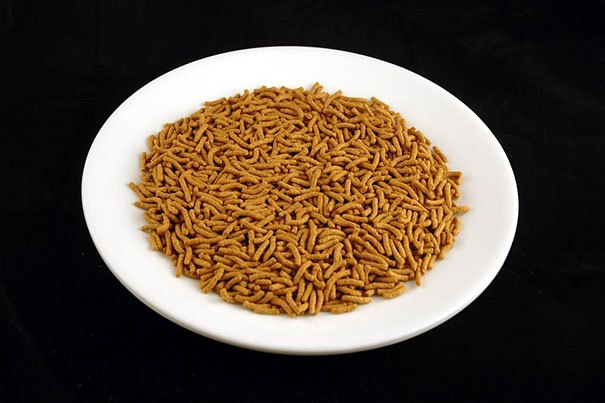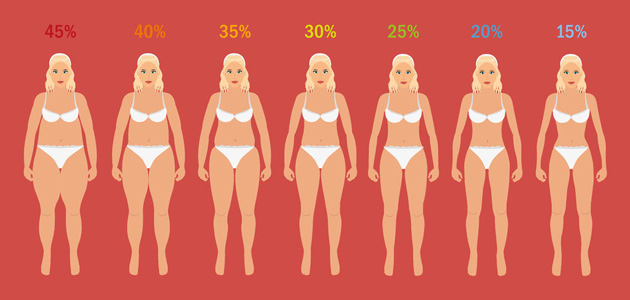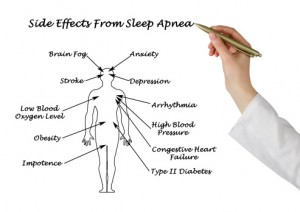Live Longer, Feel Better, and Look Better: Is a Calorie Restricted Diet for you?
When I was working at the hospital, in the '90's, we accepted dietetic interns and one of those interns was a student from Singapore, whose husband was in medical school at the same time. Their plan was to return to Singapore to open their own wellness center. I share this because it was from this couple that I was first introduced to the concept of calorie restriction (CR) for longevity. This concept appears to be taking on new interest, and with today's obesity epidemic, I thought it would be a good topic to write about.
The purpose of this article will be to look at what exactly we would call a calorie restricted diet, why we would be interested in such a concept, what science has to say about CR, concerns to be aware of, and give suggestions to readers who are interested in considering the diet for their own health.
What is 'calorie restricted'?
This is probably a silly question. Obviously, it's restricting calories! But how much of a restriction? Most research considers a restriction to be a decrease of as little as 20% up to as much as 40%. To give you an example of what that would mean, if you currently ate 2,000 calories per day, cutting 20% would mean you would then eat 1600 calories, and if you were to cut it by 40%, you would eat 1200 calories. The big key to the success of such a diet, however, is to eat high quality, nutrient-dense foods. We will address this later.
What is important to keep in mind, however, is that although a natural consequence of following a CR diet is weight loss, this is NOT a weight loss diet. The purpose of a traditional CR diet is to slow aging and improve your chances for an extended, healthy life. Granted, when your weight is closer to a healthy, ideal weight, your health usually improves, also. But many people who regularly follow a CR diet lifestyle actually have weights that are between 10-25% lower than what may be considered an 'ideal' body weight.
Why go on a restricted diet?
The most widely promoted reason for going on a CR diet is to expand your lifespan. Not only do people follow a CR diet to live longer, but to also live healthier, since a CR diet is said to be responsible for reducing the risk of cancer, diabetes and heart disease, just to name a few. We know a CR diet does all this for animals, but does it do the same for humans? Although some people are already imposing this strict regimen upon themselves, it is really too early tell whether CR will have the same effect in humans. However, as long as they are eating an adequate, healthy diet, and don't allow their weight to drop too low, they may not be doing themselves any harm. For some people, however, such a diet may not be a benefit. Before starting any new diet, be sure to check with your healthcare provider.
An interesting outcropping to following a diet program to promote a longer life is the number of researchers attempting to find that same solution in a pill! Scientists are curious about the physiological changes that result from a CR diet and are trying to duplicate those changes through drugs. I'm sure we'll all know when the 'fountain of youth' has been discovered in a bottle.
Give me research!
Although it has been shown time and time again that this type of diet has multiple health and longevity benefits for animals, as mentioned above, showing the same results in humans has been difficult. Here are the only three so far;
· The National Academy of Science (NAS) concluded that humans who followed a calorie restricted diet for 6 years saw a 40% decrease in risk factors for developing heart disease.
· In 2006, NAS found that humans following a calorie restricted diet were at less risk for oxidative and metabolic stress in the brain.
· In a 2006 issue of the Journal of the American Medical Association, researchers studied human subjects who followed up to a 25% calorie restricted diet. After 6 months, these subjects were found to burn fewer calories at rest.
Concerns of a CR diet
One concern that many researchers have is that if people choose to go on a CR diet, they eliminate the wrong foods and the few foods they do eat are nutrient-sparse, where it should be just the opposite. If you plan to experiment with this diet, now is the time to commit to eating healthy, whole foods. You may have to get to know your kitchen and how to use what's in it!
Another concern when looking into a CR diet is the big promotion for supplement use. On many websites catering to CR followers, readers are led to believe that because their calories are restricted that they are lacking essential nutrients and the REAL key to a long, healthy life is supplements, especially their supplements, which of course are superior to any others. If you are going to follow a CR diet in order to improve your health and live longer, it just makes sense that the foods you do eat are of the highest biological quality, providing all the important nutrients and antioxidants possible.
Putting it into play
There are different ways to follow a CR diet; you can either consistently drop your calorie intake on a daily basis, or, as was done in some research studies, you can pick one or several days per week and drop the calorie level on just those days. It is felt that if you start with just picking a few days to restrict your calories, it may be easier to follow. Proponents of the diet do recommend a gradual restriction, taking one to two years to get fully into the restriction, rather than just dropping the calorie intake by 25-40%. The key benefit is to develop health effects of the restriction, not develop malnutrition! Again, this is not a diet to follow for weight loss, but to improve your health and longevity.
How many calories are you currently eating? If you don't know, either work with a registered dietitian (RD) who can help you figure out your current intake, or find a website that will allow you to enter in all your foods for several days. A couple of sites that help you do this are www.mypyramid.gov and nat.crgq.com/mainnat.html. The next step would be to determine how many calories you actually need. Again an RD can help you or you can find a website to help you discover this, such as www.wvda.org/calcs/index.htm.
To get the most out of a CR diet, as mentioned earlier, it is important that you eat foods that are nutrient dense. This means a lot of nutrition packed into every morsel, which includes plenty of fresh fruits and vegetables. This also includes a lot of bulk, such as a lot of salads and high fiber produce and starches, such as brown rice and whole grain breads and cereals, focusing most on low glycemic index foods.
Here are some specific tips when considering a CR diet:
· Eat a lot of vegetables, of all kinds. These foods contain the highest content of a wide variety of nutrients for their calories.
· Carefully select the right amount of protein. For a CR diet, it is recommended to stick to the RDI range of 0.6-0.8 grams per kilogram of body weight. This means that if you weigh 150 pounds, your protein needs would be 41 to 55 grams of protein per day. Most people eat MUCH more than that, so calculate how much you eat so you're more aware of where you are and where you have to go.
· Pay attention to the kind of protein you eat. This is important no matter what diet you're on; the more plant-based proteins you can eat, the healthier your outcomes. It is important to understand how you can follow a plant-based diet and still get adequate protein. Examples of plant-based proteins include soy products, nuts, and beans. Combining vegetables with healthy starches will ensure you get complete proteins.
· Choose healthy, plant-based fats. Foods containing monounsaturated fats include olive oil, nuts, and avocados. It is important to remember that fat is a high source of calories, however, so be sure to limit your fat intake.
· Avoid simple sugars and processed flours. You've heard this one, before, too! The less processed the foods, the more natural and more nutritious they are.
A calorie restricted diet isn't for everyone, and there may be aspects of a CR diet that appeal to you and other aspects that repel you. The purpose of this article, however, was to inform you of what this growing trend is all about and give you something else to consider if you are concerned about your health and lifespan. We may not have found the fountain of youth, yet, and this may not be it, either, but at least following some of the guidelines proposed by CR followers can be healthy for everyone.
- Prev:Fat & Happy
- Next:Finally...a Diet that DOES Work
-
Is a Low-Carb Diet Safe for Kids?
Low-carbohydrate eating plans continue to be popular. And w
-
How To Lose Cellulite On The Thighs!
Do you have cellulite on your thighs? If so, youre not alone. Millions
-
How To Burn Leg Fat And Feel Good About How You Look
Does looking at your thighs bother you?
-
Reaching Your Weight Loss Goals
What are the essentials you need to successfully lose weight and attai
-
Fast Food Fantasy Comes True: 30 Healthiest Fast Food Choices
We dont normally use the adjective healthy when were talking about fas
-
Carbohydrates for Overweight
Which carbohydrate can be used to reduce overweight and why.Our so
- DON'T MISS
- They Say Look In The Mirror Dont See Fat See Beautiful Thats Not Going To Make You Healthy
- Losing Weight Can Indeed Be Very Simple
- Tips to Manage Adult Incontinence!
- Weight Loss Solutions That Work
- Dieting Scams And Losing Weight
- Treatment For Weight Loss And Fast Reduce Obesity
- Enjoy The Benefits From Weight Loss
- Vegetarian - Not All Or Nothing
- Healthy Snack Foods You Can Eat When Trying To Lose Weight
- Why Diets Are A Waste Of Time Money What You Can Do Instead




